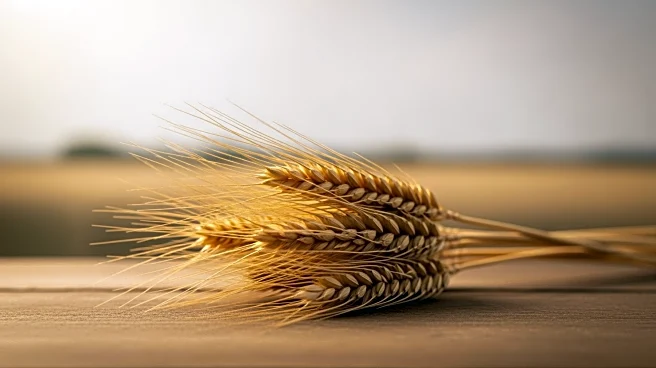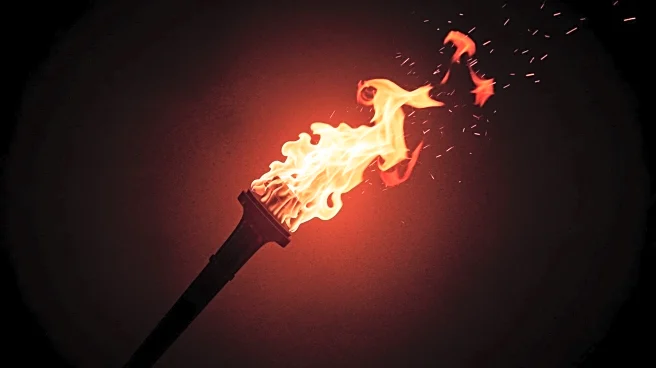What's Happening?
Ukraine's Security Service (SSU) has charged the Deputy Minister of Agriculture of Russia with a war crime for orchestrating the theft of over 4 million tons of Ukrainian grain from occupied territories. The grain, valued at over 23 billion UAH, was allegedly
sent to Russia and Crimea, then exported as Russian goods to various countries. The SSU emphasized that these actions violated international humanitarian law. The Deputy Minister faces charges under Article 438 of the Criminal Code of Ukraine, which could result in 8 to 12 years in prison.
Why It's Important?
The theft of Ukrainian grain represents a significant violation of international law and highlights the economic impact of the conflict on Ukraine's agricultural sector. The charges against the Russian official underscore the broader issues of accountability and justice in wartime activities. The situation may influence international perceptions of Russia and affect diplomatic relations. The economic ramifications extend beyond Ukraine, potentially impacting global food supply chains and market stability.
What's Next?
The investigation will continue as Ukraine seeks to hold responsible parties accountable. International legal bodies may become involved, and diplomatic efforts to address the issue will likely intensify. The case may prompt discussions on strengthening international legal frameworks to prevent similar violations in the future. The international community will monitor developments closely, with potential implications for future peace negotiations and security arrangements.
Beyond the Headlines
The case raises ethical questions about wartime conduct and the protection of civilian resources. The situation highlights the challenges of enforcing international law and the role of global institutions in addressing war crimes. Long-term, the conflict may influence global agricultural policies and trade dynamics, as countries navigate the complexities of resource security and geopolitical tensions.















